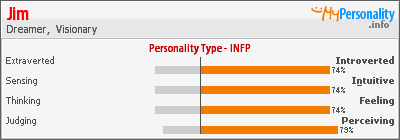1 Brothers and sisters, I could not address you as people who live by the Spirit but as people who are still worldly—mere infants in Christ. 2 I gave you milk, not solid food, for you were not yet ready for it. Indeed, you are still not ready. 3 You are still worldly. For since there is jealousy and quarreling among you, are you not worldly? Are you not acting like mere humans? 4 For when one says, “I follow Paul,” and another, “I follow Apollos,” are you not mere human beings?
5 What, after all, is Apollos? And what is Paul? Only servants, through whom you came to believe—as the Lord has assigned to each his task. 6 I planted the seed, Apollos watered it, but God has been making it grow. 7 So neither the one who plants nor the one who waters is anything, but only God, who makes things grow. 8 The one who plants and the one who waters have one purpose, and they will each be rewarded according to their own labor. 9 For we are co-workers in God’s service; you are God’s field, God’s building.
We hear from St. Paul almost weekly. The Revised Common Lectionary, which has replaced the one in your Prayer Books, is a bit more willing to use other writer's work in the "epistle reading" but none-the-less we often hear from Paul. Much of his writing is in the area of conflict resolution! He has his own issues with the Jerusalem church, and he has to resolve issues in the congregations he planted. In this part of his letters to the congregation he began in Corinth, he is clearly dealing with some problems. Problems we have here.
Paul informs us that while we are supposed to be spiritual (and who in our age does not want to be that?) we are "worldly." Worldly when we fight, when we choose up sides, when we forget, and this is key, when we forget that we are all followers of the One who loves us all.
After every sermon in every Episcopal liturgy, we stand and proclaim the outline of faith called The Nicene Creed. That creed, is the sum of all we say we are, what we say of ourselves, to others and to ourselves. Note that it does not mention a particular prayer book, hymnal, music system, gender, sexuality, or ministry. Paul had it more simply: the faith is encapsulated in the statement that Jesus is Lord -- period. Jesus himself had a simple formula, remember he did not say we follow him when we take a particular position, or support a particular viewpoint: rather he rebukes the apostles who try to impose orthodoxy.
Parish, diocesan, and national canon all prohibit what the secular world calls absentee voting. There is a reason for this, and it is important to know about it. This church believes that our meetings come within the promise that, "where two or three are gathered in my name, I am there with you." And we are graced with another promise, that we are, "surrounded by a cloud of witnesses" (Hebrews 11 and 12.) So we believe, this church believes that being in the presence of the Spirit, of Jesus, and of each other, we make the best possible decisions. That is why we have to come together, to be here, when we vote.
And if that is so, if the meeting we are about to have includes not only Emmanuel's members, but also a cloud of saintly witnesses and God: We should conduct ourselves aware that we are we surrounded. Yes(!) that means prayer before and perhaps during the meeting. It also means that we should remember we are all on the path to God, and it does not, ever, exclude any of us, value any of us more than another, nor does it deny anyone.
So, if hymns, prayerbooks, liturgy, or budgets are issues, remember that they are not in the creed. They are indeed important, but not salvation issues. If you dislike someone, consider the biblical injunction to settle your issue before you approach the altar. If you need to ask what the mission of the church is generally or of Emmanuel specifically, remember what Jesus said he required, "When I was sick you ministered to me, when I was in prison you ministered to me, when I was homeless you ministered to me." (See Mathew 25 31to 46)
Come, listen intently, debate respectfully, and vote prayerfully. That is what these meetings are for, what the Spirit calls us to do, together. We are all, (all!) on the same path, the same journey. If we understand what we are called to do, ministry to those in need, then what we seek is the way forward towards that work. Invite our Lord to be with us: Oh Come, oh Come Emmanuel!





No comments:
Post a Comment